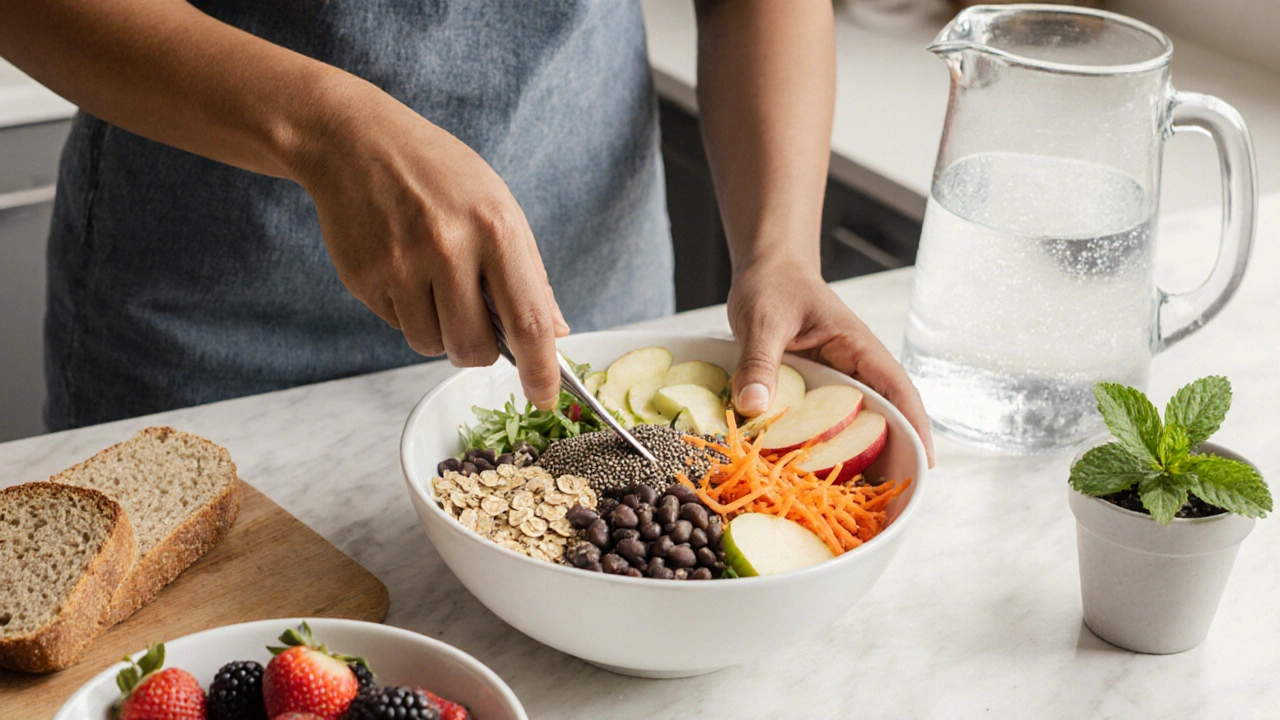

When working with insoluble fiber, a non‑dissolving part of plant cell walls that adds bulk to stool and speeds up intestinal transit. Also known as roughage, it helps keep the digestive system moving.
It is one subclass of dietary fiber, the broader category that includes soluble types which dissolve in water and form gels. While soluble fiber feeds the gut microbiota and can lower cholesterol, insoluble fiber primarily provides the mechanical push that clears the bowels. When you don’t get enough, the most common sign is constipation, a condition that many people think is just a nuisance but actually signals an unhealthy gut environment.
Insoluble fiber plays a key role in maintaining regular bowel movements, and that regularity does more than just keep you comfortable. By adding bulk, it stretches the intestinal wall, which triggers peristalsis – the wave‑like muscle contractions that move waste along. This action not only prevents constipation but also reduces the time harmful substances linger in the colon, lowering the risk of colorectal cancer. Studies show that diets high in insoluble fiber are linked to a healthier gut microbiota, and a balanced microbiome in turn supports immune function and reduces inflammation. Additionally, because insoluble fiber doesn’t raise blood sugar, it helps stabilize glucose levels, making it a useful ally for people watching their weight or managing diabetes. In short, the fiber‑colon‑microbiome triangle illustrates how insoluble fiber influences gut health, which influences overall wellness.
Getting enough of this powerhouse is easier than you think. Whole grains like wheat bran, brown rice, and popcorn, along with vegetables such as carrots, celery, and broccoli, are rich sources. Nuts and seeds add a crunchy boost, and even fruit skins—think apples and pears—contribute. A practical tip is to swap refined carbs for their whole‑grain counterparts: choose whole‑wheat bread instead of white, or add a tablespoon of flaxseed meal to your morning smoothie. Start with small increments; the gut needs time to adjust, and drinking plenty of water ensures the fiber can do its job without causing bloating. Below you’ll find a curated set of articles that dive deeper into related topics—how fiber interacts with medications, the role of supplements in gut health, and tips for managing common digestive concerns. Explore them to see how a simple change in your diet can ripple into better overall health.

Learn how soluble fiber can tame chronic diarrhea, which foods boost the right fiber, which to avoid, and practical tips for a balanced diet.